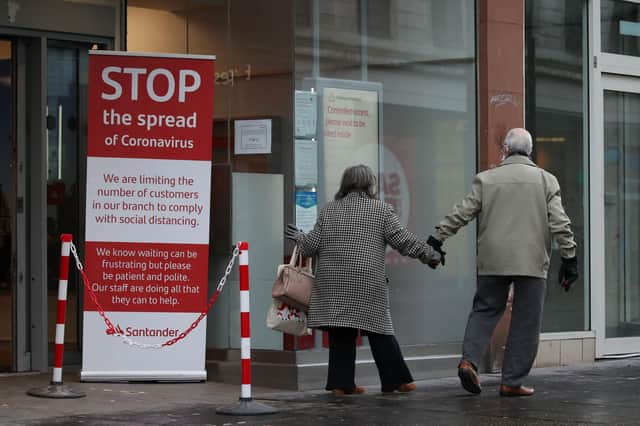Scotland 'learning from experience' in examining hotel quarantine plans


The chief medical officer, Dr Gregor Smith, told the Scottish Government’s daily coronavirus briefing that such a move would be part of the government’s plans if they deem it a useful way to help reduce the likelihood of new variants of the virus being introduced into Scotland.
In November, Professor Jason Leitch said Scotland had effectively eliminated Covid-19 before it was “re-seeded” in the country by those travelling from other parts of the UK and abroad.
Advertisement
Hide AdAdvertisement
Hide AdProfessor Devi Sridhar and Professor Linda Bauld, both public health experts and advisers to the Scottish Government and Scottish Parliament on Covid-19, have repeatedly called for stricter restrictions on travellers entering Scotland.
Last year, Nicola Sturgeon said that stricter measures were not the right choice for Scotland because of its links with the European Union and that it was a different scenario to that faced by New Zealand and South Korea who have had strict travel rules since the early stages of the pandemic.
Asked about the scientific basis for ‘quarantine hotels’ which transport minister Michael Matheson said are under consideration, Dr Smith said concern around new variants could lead to such a measure being introduced.
Their introduction would see incoming travellers taken to a specific place for their 10 day quarantine rather than allowing them to do so at their final destination.
He said: “One of the big considerations when you look at the international picture just now is the rise of variants of concern in different parts of the globe.
"We’ve seen first of all a variant first being identified here within the south-east of England, a further one being identified in the south of Africa and now two different variants in Latin America, which all have caused some degree of concern, usually because of the heightened and increased transmissability that is associated with these viruses.
"In response to that I think it is important to review our approach when we deal with the subject of international travel and make sure that we learn from our experience over the course of 2020 to make sure that we are not allowing these new variants to be imported into the country.
"One of the ways we can do that is to look at how we can strengthen the arrangements around quarantine to support people through that period to make sure that if they do become positive after they do enter the country, that they are not then spreading that to other people.
Advertisement
Hide AdAdvertisement
Hide Ad"At this stage this is about looking at all potential options that may be available to us to try to strengthen those arrangements and put them in place when it is appropriate to do so.”
In response to a question from a journalist around why stricter rules for travellers had not been introduced earlier after the First Minister announced tighter rules on incoming travellers, Ms Sturgeon said “we are where we are”.
She added that Scotland had been keen to ensure rules around the borders and incoming travellers were decided and implemented on a four nations basis.
However, the Scottish Government has had the power to implement stricter quarantine requirements and self-isolation enforcement since the start of the pandemic.
A message from the Editor:
Thank you for reading this article. We're more reliant on your support than ever as the shift in consumer habits brought about by coronavirus impacts our advertisers.
If you haven't already, please consider supporting our trusted, fact-checked journalism by taking out a digital subscription.
Comments
Want to join the conversation? Please or to comment on this article.